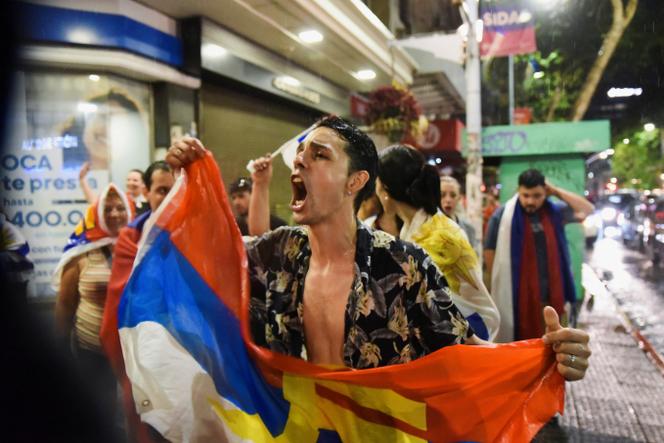


To shouts of "Uruguay!" – the three syllables chanted with enthusiasm – Yamandu Orsi's supporters gathered in Montevideo, the country's capital, to celebrate the victory of their candidate in the second round of the presidential election on Sunday, November 24. Orsi received 49.8% of the vote while his opponent garnered 45.9%. The crowd waved numerous flags from his party, the Frente Amplio (left), speckling the crowd with blue, red, white and yellow, as shown in images broadcast on Uruguayan television. After a period of center-right leadership under the presidency of Luis Lacalle Pou – who came to power in 2020 and could not run for a second consecutive term due to constitutional restrictions – the country has shifted back to the left, which governed the country for 15 years, between 2005 and 2020. In this compulsory vote, 2.7 million Uruguayans were called to the polls in this country of almost 3.5 million inhabitants.
"I will be the president of growth," promised Orsi in his brief victory speech on Sunday. The 57-year-old former history teacher, who served as governor of Canelones (the country's second most populous department, after Montevideo) between 2020 and 2024, said that "what [he] knew how to do" was "listen a lot." This approach aligns with the tradition of Uruguayan democracy, built around consensus. In a message of unity, Carolina Cosse, the vice president-elect, assured, "We're going to respect all opinions."
Defeated candidate Alvaro Delgado, who served as presidential secretary to the outgoing head of state, quickly conceded defeat and delivered a "message of tranquility, peace and governability." Pou called his successor to congratulate him and indicate that he was ready to "begin the transition as soon as it [seemed] appropriate."
Orsi has received the backing of former president José "Pepe" Mujica (2010-2015), who is 89 years old and a respected figure of the Uruguayan left. His administration is not announcing any major breaks after the term of Pou, who currently has an approval rating of around 50%. The president-elect promises to boost the country's growth (3.2% according to IMF projections for 2024) by encouraging industrial activity, particularly around the creation of technology parks. His program also focuses on youth employment, with the creation of 12,000 jobs for 18-25 year-olds. Furthermore, Orsi plans to improve public transport by increasing the number of electric fleets. The former professor wants to enhance public education, with more scholarships for students. To address issues of insecurity and organized crime, the proposal includes the creation of 2,000 new police positions and the installation of 20,000 surveillance cameras.
You have 40.72% of this article left to read. The rest is for subscribers only.
